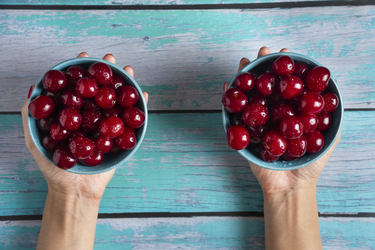Typically, cranberries, whether it’s sauce or juice, are a feature of the Thanksgiving table. However, these small, bright red berries are more than just a holiday treat; they’re nutritional powerhouses and have many health benefits. The cranberry is good for you all year round and can help you improve.
A Brief History of Cranberries
Cranberries, scientifically known as Vaccinium macrocarpon, are one of the few fruits native to North America. Indigenous peoples used cranberries for food, medicine, and even fabric dye. Later, sailors valued them for their ability to ward off scurvy on long voyages due to their high vitamin C content.
Cranberries are grown today on great farms in the northern United States and southern Canada, where they thrive in freshwater bogs. This special corner and these special growing conditions give them their tart flavor and bright color.
Cranberry Nutrition
Raw cranberries are a low-calorie, nutrient-rich fruit. One cup contains only 46 calories, 12g of carbohydrates, 4g of fiber, 4g of sugar, 1g of protein, and no fat. They are also a good source of vitamins and minerals, providing 25% of the daily requirement for vitamin C, 9% for vitamin A, 6% for vitamin K, and 16% for manganese.
Key Nutrients and Compounds
Cranberries are packed with key nutrients and compounds contributing to their health benefits. They are rich in antioxidants, including quercetin, anthocyanins, and proanthocyanidins, which fight free radicals and help protect against chronic diseases like cancer and heart disease.
Cranberries are also fabulous sources of vitamin C in a good way, and they are essential for immune health, collagen, and skin health. A cup packed with four grams of fiber keeps digestion healthy, regulates blood sugar, and leaves you feeling full. They also have vitamins E and K that help skin health, blood clotting, and cellular repair.
Health Benefits of Cranberries
Cranberries offer key health benefits for urinary tract, heart, and digestive health. Their unique PACs help prevent urinary tract infections, while antioxidants support cardiovascular function by improving blood pressure and cholesterol. The fiber content also promotes healthy digestion and gut health.
Urinary Tract Health
Cranberries are best known for preventing urinary tract infections (UTIs). Their proanthocyanidins prevent bacteria, particularly E. coli, from adhering to the bladder and urinary tract walls. While cranberries don’t cure UTIs, incorporating cranberry juice or supplements into your diet may help reduce the frequency of infections.
Heart Health
Cranberries are important for cardiovascular health. Their antioxidants help reduce LDL (bad cholesterol) and increase HDL (good cholesterol), reducing the chance of heart disease. They may also help control blood pressure and improve blood vessel function.
Digestive Health
Cranberry fiber supports gut health by helping with regular bowel movements and the growth of beneficial bacteria. According to cranberries, eliminating harmful bile acids from the digestive system may also reduce the risk of colon and gastrointestinal cancers.
What to Watch Out For
Cranberries are great, but you need to watch how much you consume. Dried cranberries and juice are often fortified with sugars to help the product last longer. Reach for the unsweetened versions whenever possible. People prone to kidney stones should also be cautious, as cranberries contain oxalates that can help form stones.
The Takeaway
Cranberries are not just a Thanksgiving side dish; they’re a year-round superfood full of nutrients, antioxidants, and health-promoting properties. Cranberries are good for you and your health in so many ways.




